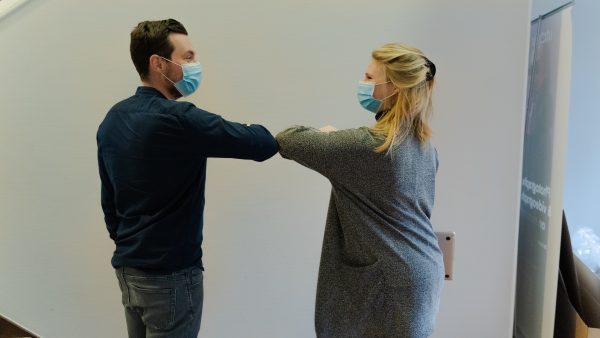How Will Coronavirus Affect Your Search?
From Career Tips, 2020 Volume 3, March 2020
A career search is difficult enough without all of the challenges we face with this pandemic. It's tempting to simply put everything on hold until there is more certainty about the future.

But consider this:
- While many employers may put hiring temporarily on hold, particularly in certain sectors (eg, hospitality and travel), there are others who may actually need more employees.
- Obvious ones include healthcare, any organization involved in (or that could become involved in) production of personal protective equipment, services connected to video or phone conferencing services, those supporting such products and services, firms that provide deep cleaning / remediation, and companies involved in streaming services (Netflix, Hulu, Amazon Prime, etc.).
- Those who are particularly adept at on-line learning / teaching / support for such, and remote team and project management might suddenly be in demand.
- With all of the uncertainty and anxiety, those who present a consistent positive demeanor, and who are perceived as ones who can uplift the entire team may also be in demand.
- Many employees who were approaching retirement may decide to retire rather than attempt to operate in the new reality.
- Others who don't make the transition well to remote work may also decide to stop out, at least temporarily. It's likely that these effects will create openings sooner rather than later.
- Many job seekers may decide to pause their searches, improving the competitive landscape for those who don't.
- Even if you are in an area that pauses hiring, don't you want to be first in line when the pause is lifted? To make that happen, you need to be out there creating the right attention.
So what should you do?
One thing is to take stock of everything you've been doing, and adapt it to the new reality.
Think carefully about your target, and how it might be affected by changes due to the pandemic. Consider whether a pivot might steer you towards a more promising channel, or make you more marketable.
Sharpen up your resume. Make sure the opening draws a clear picture of exactly what you bring to the table, why I should hire you and for exactly what role. Confirm that every single bullet point under every job points to a clear, concrete result you produced or challenge you solved.
Explore your marketing messages - your 1-line answer to "what do you do?", your 30 second pitch, your concise, results-oriented case studies you will present when the listener says, "tell me more".
Learn how to make the most of 'virtual networking'. That isn't just sending a lot of LinkedIn connection requests, messages and emails. It means setting up phone calls and video-conferences, and then presenting a strong, upbeat, positive and highly focused message in every one of those.
Work especially on your phone and interview skills. It's hard to imagine companies going back to significant use of in-person interviews, at least for the next several months. And even when this settles down, the percentage of in-person interviews is likely to be greatly reduced. So get really good at listening and communicating without the benefit of body language!